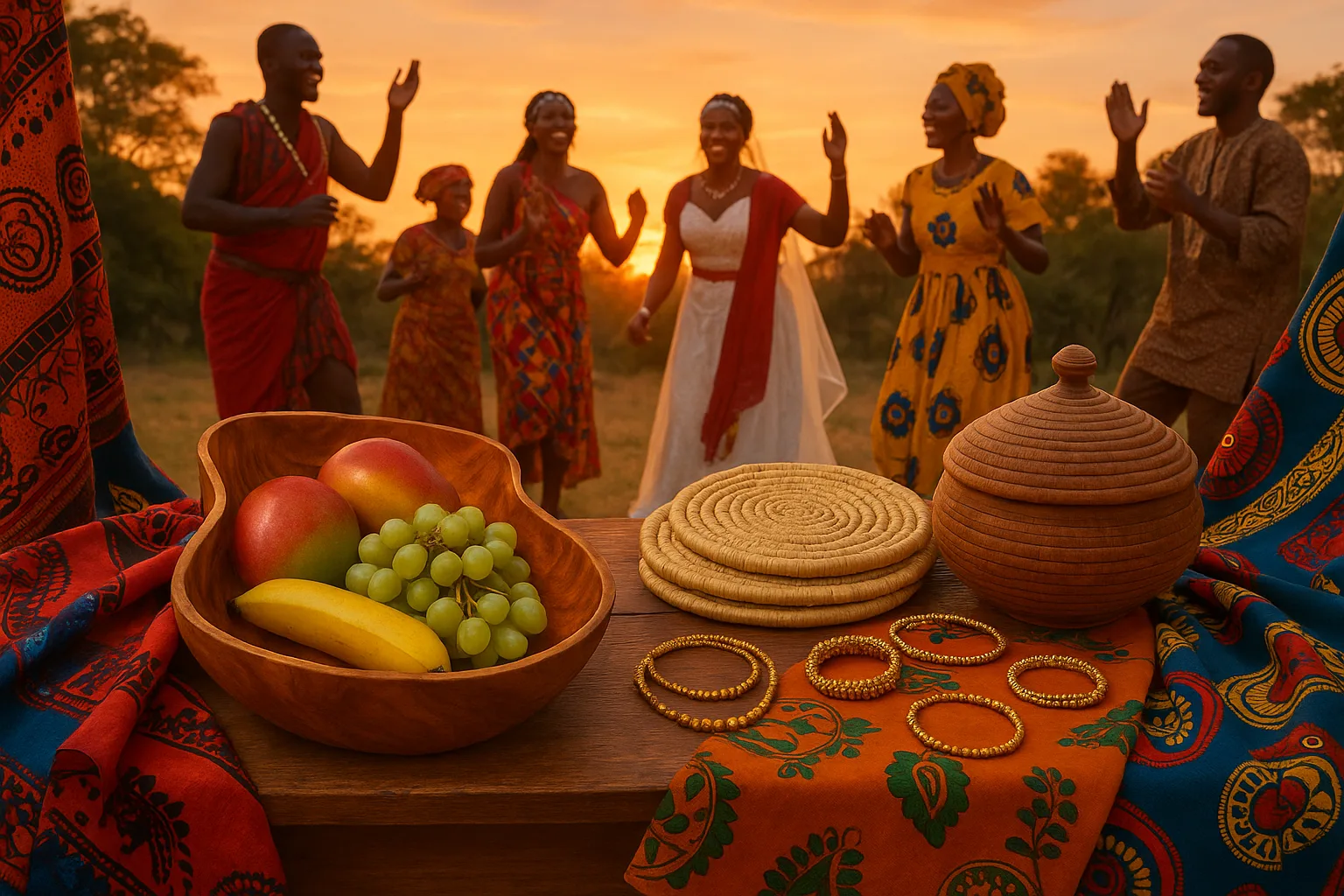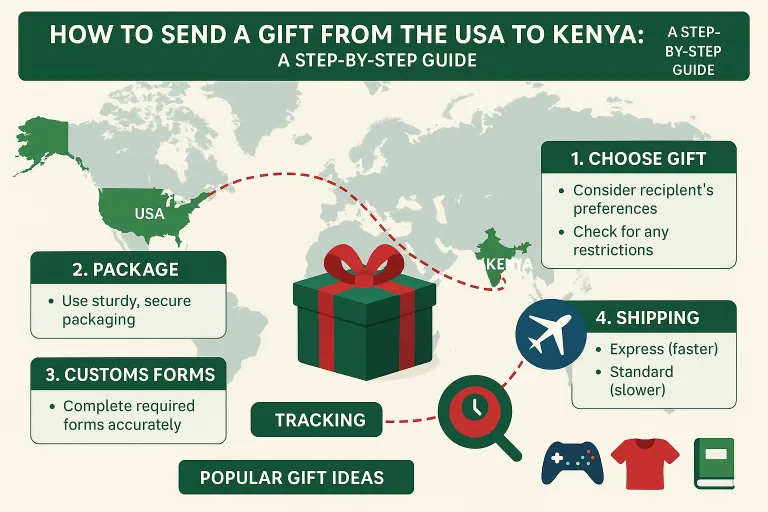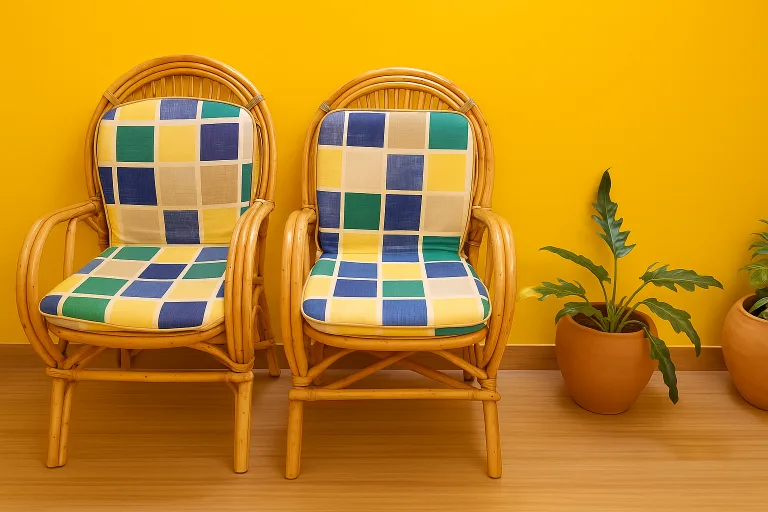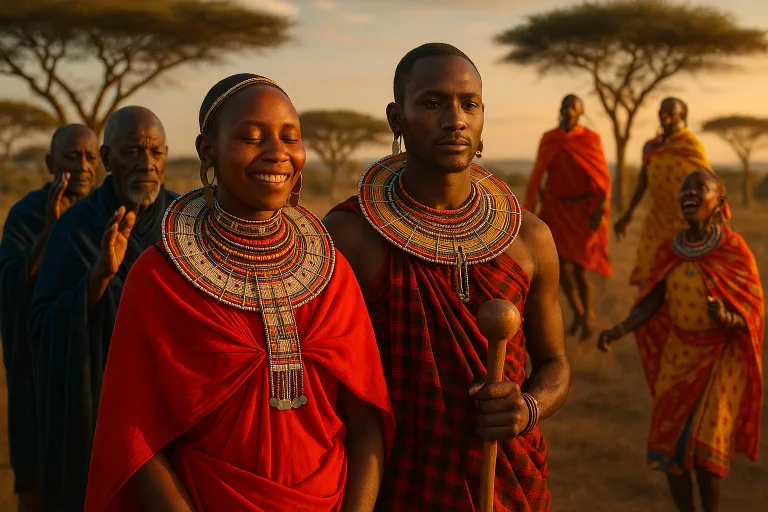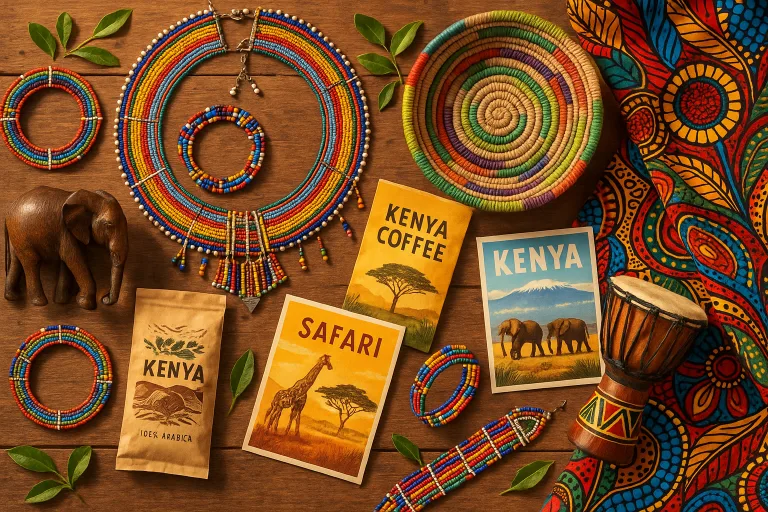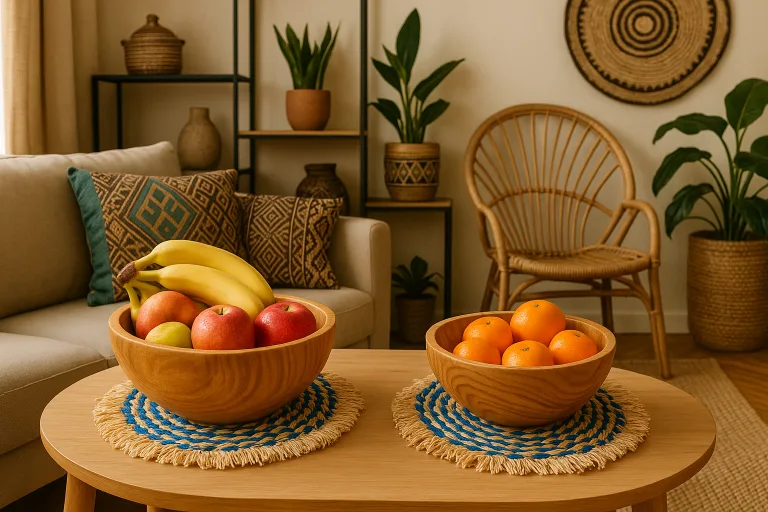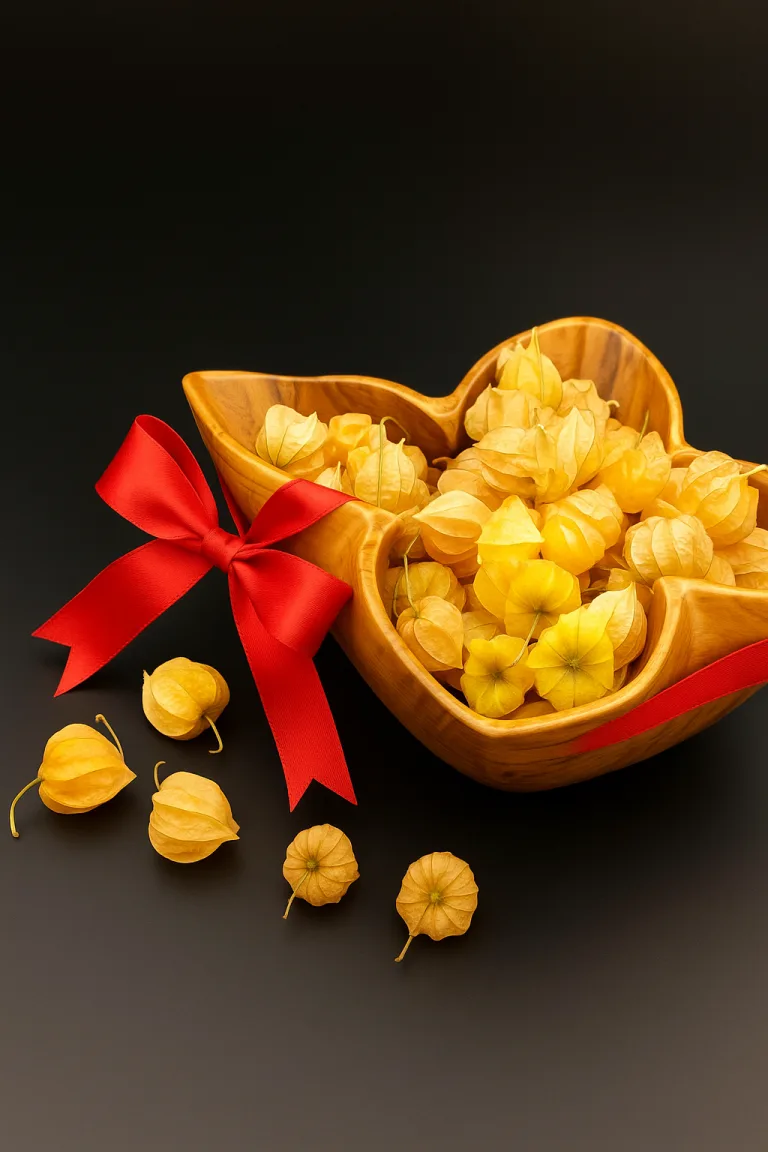Weddings in Kenya are vibrant, joyous occasions filled with color, music, dance, and deep-rooted cultural traditions. They serve not only as a union between two individuals but also as an opportunity for families and communities to come together in celebration. One integral aspect of these celebrations is the exchange of traditional wedding gifts—a practice steeped in symbolism, respect, and shared values. These gifts reflect the rich diversity of Kenya’s tribes while embodying universal themes of love, gratitude, and support.
Kenyan weddings are steeped in tradition, and giving a traditional gift can honor this cultural significance. At Jadala, we take pride in creating products that reflect Kenya’s vibrant heritage while meeting contemporary needs. Whether you’re attending a wedding or looking for meaningful ways to celebrate the occasion, our handcrafted items make perfect gifts that bridge the gap between tradition and modernity.
The Importance of Traditional Wedding Gifts
Gift-giving during weddings in Kenya is more than just a social courtesy; it holds profound cultural meaning. It symbolizes blessings for the newlyweds’ future life together, expresses gratitude for being part of the ceremony, and strengthens familial and communal bonds. In many Kenyan cultures, weddings are seen as collective events where everyone contributes something meaningful—whether material or emotional—to ensure the couple starts their married life on solid ground.
These gifts often vary depending on the ethnic group, region, and specific customs of the families involved. However, certain elements remain consistent throughout: generosity, thoughtfulness, and adherence to tradition.
Types of Traditional Kenyan Wedding Gifts
1. Livestock (Cows, Goats, Sheep)
For many rural communities in Kenya, livestock remains one of the most cherished wedding gifts. Among pastoralist groups like the Maasai, Samburu, and Turkana, cows hold immense value—not only as a source of sustenance but also as a symbol of wealth and prosperity. Giving a cow or goat to the bride’s family signifies respect and appreciation, especially during dowry negotiations.
Even among non-pastoralist communities, livestock gifts are common because they provide practical benefits such as milk, meat, and income generation. The act of gifting animals underscores the importance of sustainability and self-sufficiency in marriage.
2. Clothing and Fabric
Fabric plays a central role in Kenyan culture, and its inclusion in wedding gifts is both symbolic and functional. Kanga and kitenge cloths—colorful, patterned fabrics—are popular choices for wedding presents. These textiles often carry messages written in Swahili, offering words of wisdom, encouragement, or blessings for the couple.
Additionally, some families may gift traditional attire specific to their tribe. For instance, brides from the Luo community might receive elegant leso wraps, while those from the Kikuyu tribe could be presented with intricately designed shukas. Such gifts honor cultural heritage while ensuring the couple has appropriate clothing for ceremonial purposes.
3. Food and Beverages
Sharing food is a cornerstone of Kenyan hospitality, and weddings are no exception. Guests frequently bring baskets of maize flour (ugali), rice, sugar, cooking oil, and other staples as gifts. These items help alleviate the financial burden of hosting large gatherings while contributing to the feast enjoyed by all attendees.
In some cases, alcoholic beverages like traditional brews (e.g., busaa or chang’aa) or modern options such as wine and spirits are gifted to toast the couple’s happiness. Food-related gifts emphasize nourishment, abundance, and the spirit of sharing that defines Kenyan weddings.
4. Household Items
Practicality is key when it comes to traditional wedding gifts, particularly among urban and peri-urban couples setting up their homes. Kitchenware, furniture, bedding, and utensils are highly appreciated, as they equip the newlyweds with essential tools for daily living.
At Jadala, we offer beautifully crafted household items that blend functionality with cultural significance. Consider gifting our African Shaped Medium-Sized Wooden Bowl, which celebrates the continent’s beauty and diversity. Alternatively, the Round Beehive Decorated Wooden Bowl adds a rustic yet sophisticated touch to any space. Both pieces are perfect for couples who appreciate artisanal craftsmanship and want to incorporate African aesthetics into their home.
5. Cash Envelopes
While cash gifts may seem less personal, they are incredibly significant in contemporary Kenyan weddings. Known locally as “harambee” (meaning “to pull together”), monetary contributions enable the couple to cover expenses related to the ceremony or invest in their future. Cash envelopes are typically handed over discreetly during the reception, accompanied by heartfelt wishes.
This practice highlights the communal nature of Kenyan society, where neighbors, friends, and extended family members rally around the couple to support them financially and emotionally.
6. Jewelry and Adornments
Adorning the bride with jewelry is another cherished tradition in Kenyan weddings. Beaded necklaces, bracelets, anklets, and earrings crafted by skilled artisans are common gifts, especially among Maasai and Kalenjin brides. These accessories not only enhance the bride’s beauty but also convey deeper meanings tied to identity, status, and marital commitment.
Gold and silver jewelry pieces are also popular, particularly among affluent families, as symbols of prosperity and elegance. Whether handmade or store-bought, these adornments celebrate femininity and grace within the context of matrimony.
For table settings that reflect Kenyan artistry, explore our Raffia Placemat Sets, which blend traditional weaving techniques with modern aesthetics. These placemats are not only practical but also serve as conversation starters, showcasing the intricate craftsmanship passed down through generations.
Modern Adaptations and Blending of Traditions
As Kenya becomes increasingly cosmopolitan, traditional wedding gifts have evolved to incorporate global influences without losing their essence. Urban couples often blend customary practices with modern trends, creating unique experiences that resonate with both older generations and younger ones.
For instance:
- Instead of live animals, some families now opt for monetary equivalents to purchase livestock.
- Customized registries allow guests to select practical items tailored to the couple’s needs.
- Themed weddings featuring fusion cuisines, decor, and attire showcase Kenya’s multiculturalism while honoring indigenous customs.
Despite these changes, the core values of giving—respect, unity, and mutual support—remain unchanged. This adaptability ensures that traditional wedding gifts retain their relevance in today’s dynamic world.
Traditional Kenyan wedding gifts encapsulate the essence of what makes these ceremonies so special: a harmonious blend of culture, love, and community. From livestock and fabric to jewelry and cash, each gift tells a story of shared history, hope, and goodwill toward the newlyweds.
At Jadala, we invite you to celebrate this rich cultural legacy with our curated selection of handmade products. Whether you choose our African Shaped Medium-Sized Wooden Bowl, the Round Beehive Decorated Wooden Bowl, or our exquisite Raffia Placemat Sets, your gift will honor Kenya’s vibrant heritage while adding a touch of elegance to the couple’s new chapter.

